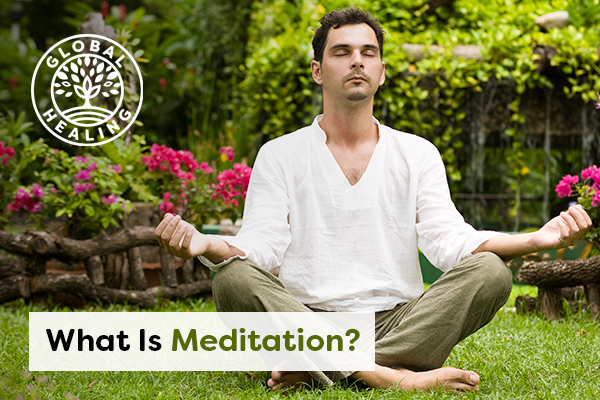
Many people imagine meditation as a deep and complicated spiritual practice involving incomprehensible mantras and unobtainable seating postures. The reality is that anyone can practice meditation, nearly immediately, and it can be done in a variety of ways. Simply put, meditation is the suspension of linear thought and the connection to a deeper level of consciousness that dwells beneath the surface of the mind, also known as the subconscious mind or soul.
Meditation History
Meditation has been a part of human life from the very beginning of our culture. It has been key to mind-body harmony, mental discipline, and peak personal performance.
There are almost as many ways to meditate as there are human beings on the planet. Gautama Buddha alone taught more than 30,000 types of meditation. There have been countless other teachers, sages, masters, and prophets of various sorts who, over the last several thousand years, have practiced and passed on methods that are key to accessing the better part of the self — the innately divine and truthful part of the personality.

Learn How to Meditate with Dr. Group, DC
Length: 16 minutes
Is Meditation Purely Spiritual?
Regardless of what you may have been taught, you do not have to subscribe to any particular belief system to meditate; I mentioned Buddhist teachings only as one example. Today, people from every walk of life and from the widest spectrum of beliefs you can imagine meditate to access this deeper and innately higher level of awareness. We cannot categorize this practice any more than we categorize humanity itself.
The Benefits of Meditation
Meditation relaxes the mind and switches the body into the parasympathetic state. This state is essential for repairing the body, activating the immune system, and improving digestion. [1] Research shows that meditation may also support normal blood sugar and reduce the risk of respiratory infections. [2] [3] Benefits of meditation extend beyond health; in fact, many people use meditation in order to clear their minds and tackle projects that require conscious awareness and lucid thinking.
There are executives who meditate to help them maintain professional objectivity, and professional athletes who practice concentration and visualization to maximize their performance. [4] There are Christians, Muslims, and Jews who incorporate some form of meditation into their prayers. There are also people with no religion at all who meditate to control their minds.
Many in today’s Consciousness Movement believe that daily meditation is essential to spiritual awakening. These groups also teach, in one way or another, that the linear thinking of the ego must become subordinated to a higher awareness that will allow the true self to be finally discovered and expressed. Persons who subscribe to this point of view may even go so far to say that the true destiny of the individual cannot be fulfilled unless this deeper level of awareness is consistently accessed and integrated into one’s daily behavior. Regardless of our spiritual beliefs, psychological knowledge, or social inclinations, anyone who wants to improve the quality of their life can use meditation to tap into the best part of themselves and allow it to emerge in their daily activities and relationships.
Simple Meditation
One of the simplest forms of meditation is mindfulness meditation. This meditation practice involves becoming aware of your thoughts, body sensations, and surroundings without projecting any judgment or resistance. During the practice, you focus on your breathing and relax each muscle in your body. You can be in any position that is comfortable to you. If thoughts, sensations, or noises arise, let them. They will pass and dissolve.
References (4)
- Davidson RJ, Kabat-Zinn J, Schumacher J, et al. Alterations in brain and immune function produced by mindfulness meditation. Psychosom Med. 2003 Jul-Aug;65(4):564-70.
- Teresa M. Edenfield and Sy Atezaz Saeed. An update on mindfulness meditation as a self-help treatment for anxiety and depression. Psychol Res Behav Manag. 2012; 5: 131-141. doi: 10.2147/PRBM.S34937.
- Barrett B, Hayney MS, Muller D, et al. Meditation or exercise for preventing acute respiratory infection: a randomized controlled trial. Ann Fam Med. 2012 Jul-Aug;10(4):337-46. doi: 10.1370/afm.1376.
- Heleen A. Slagter, Richard J. Davidson, and Antoine Lutz. Mental Training as a Tool in the Neuroscientific Study of Brain and Cognitive Plasticity. Front Hum Neurosci. 2011; 5: 17. doi: 10.3389/fnhum.2011.00017.
†Results may vary. Information and statements made are for education purposes and are not intended to replace the advice of your doctor. If you have a severe medical condition or health concern, see your physician.







